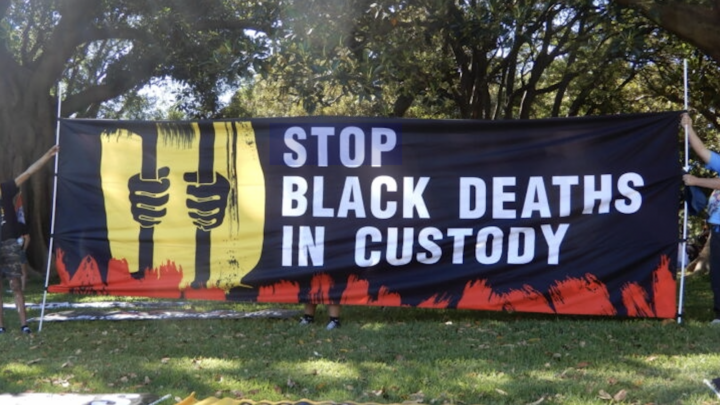
An internal investigation has been commenced after an Indigenous man died in a police watchhouse shortly after his arrest.
According to the Queensland Police Service (QPS), the 51-year old was taken into custody in Kowanyama – a small community in Far North Queensland, over allegations of domestic and family violence.
He was found unresponsive sometime later. Police say that CPR was performed on the man before he was driven to a medical clinic, where he was declared deceased.
More questions than answers
The family is understandably demanding answers, and the silence of officers surrounding the death is adding to the mistrust many Indigenous people have in police.
Many are also concerned that the investigation process, which will involve officers from the Police Ethical Standards Command, will be biased and the statements and other evidence eventually passed onto the Coroner could amount to a cover up.
Grieving family waiting for answers
And while it is standard protocol in Australia for a division of police to investigate officers, it often means that families – who are left to wait for many months or longer to get answers – are forever left in the dark about the circumstances surrounding these deaths, and Coroners have insufficient material upon which to base their conclusions.
Indeed, the process of police policing themselves is not specific to Queensland, it occurs in other states too – and it only delays the grieving process for those close to the deceased, as well as fosters mistrust in the transparency and independence of the investigative process.
Of course, in the wake of the Indigenous man’s death there are also renewed calls for the Federal Government to (finally) implement recommendations from the Royal Commission into Aboriginal Deaths in Custody.
More than 300 recommendations were published in 1988. Very few have actually been implemented and, as a result, the high rates of indigenous deaths in custody continue across the country.
The high rate of indigenous deaths in custody
Since 1988, a further 517 indigenous people have died in custody. A death in custody includes a death occurring whilst a person is watched or guarded by police. In other words, when a person is not at liberty to come and go as he or she wishes.
The Royal Commission originally determined that in respect of 18 deaths investigated in NSW, Victoria and Tasmania 13 people may have survived if custodial authorities had not been negligent, uncaring or had followed procedures adequately. The other 5 deaths might also have been avoidable on the grounds that these people may not have needed to be in custody at all.
These are themes that characterise coroner’s findings into indigenous deaths in custody still today, 34 years on from the Royal Commission, as evidenced by the deaths of Tanya Day, and Ms Dhu.
The inherent racism at all levels within the justice system is something that is often discussed, but also not easily resolved. Aboriginal adults are 16 times more likely to be incarcerated, the rate for youths is even higher.
Black lives matter
While there was some hope that the Black Lives Matter protests, sparked by the death of George Floyd in 2020, might ignite change, real progress is painstakingly slow in Australia, despite a palpable community desire for it.
In August this year, the Office of the Director of Public Prosecutions (ODPP) NSW announced that it was applying to the NSW Supreme Court to have a charge laid against a Corrective Services NSW (CSNSW) officer, who shot a Wiradjuri man in the back, upgraded.
The unidentified prison officer shot at a handcuffed and shackled prisoner Dwayne Johnstone three times as he attempted to escape out the front of Lismore Base Hospital. The third shot hit Dwayne Johnstone in the back and proved fatal. The officer was originally charged with manslaughter, the ODPP wants the charge upgraded to manslaughter.
Of course, it is one thing to lay charges, it is quite another to successfully prosecute. Despite the high numbers of indigenous deaths in Australia, not one single person has ever been convicted.
The recent controversial finding by a jury in the Northern Territory (with no indigenous representation) that police officer Zachary Rolfe was not guilty of manslaughter or a violent act causing death over the killing of Kumanjayi Walker was one that divided Australia.
There is still yet to be a Coronial Inquest into the death of Kumanjayi Walker, which may deliver the family some answers, but the Inquest can only make recommendations. We can only hope that the recommendations don’t get ‘filed and forgotten’ as they seem to so often do in Australia.
Indigenous families deserve better. They deserve not to have to live in fear for the lives of family members who end up in police cells or jail.
